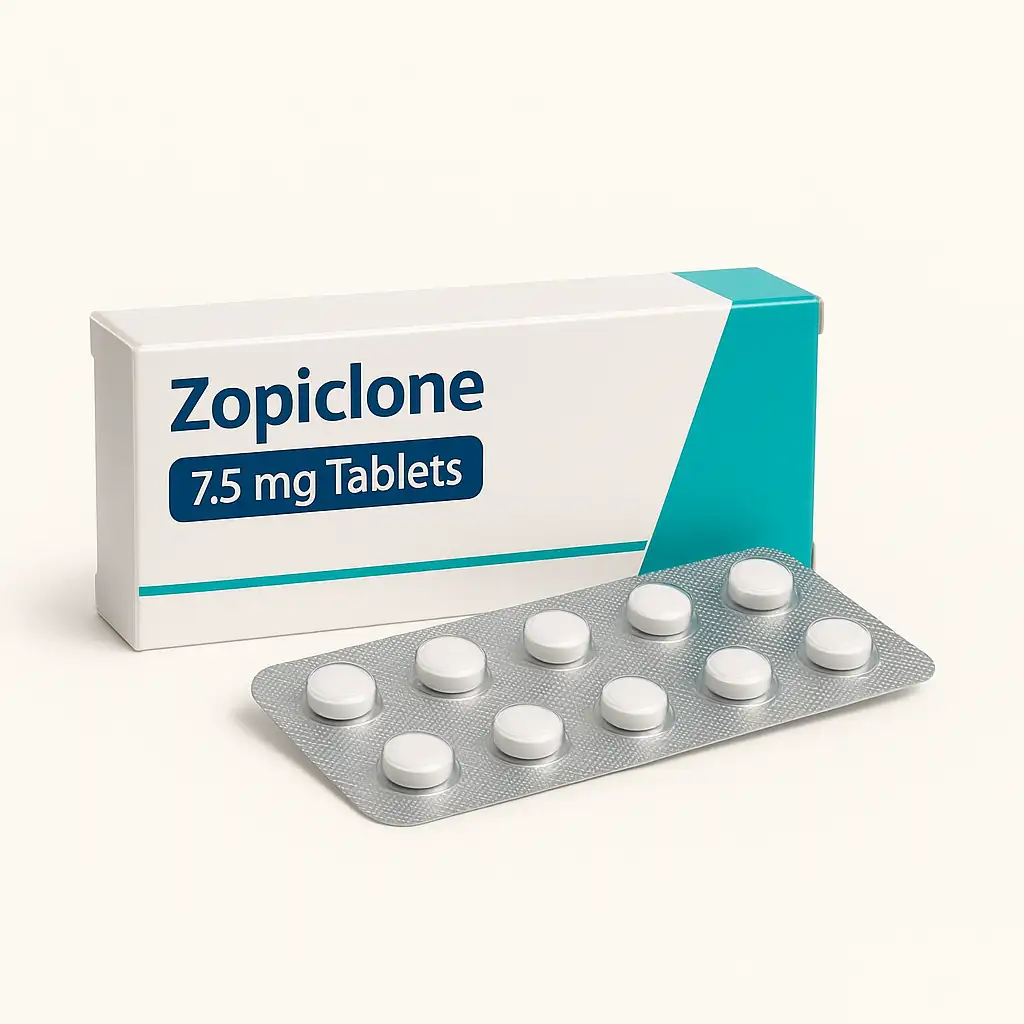
Insomnia is a common sleep disorder affecting millions worldwide, and Zopiclone has long been a popular prescription medication to manage it. However, due to its potential for dependency and side effects, many people seek safer alternatives. Fortunately, medical advancements and natural remedies now offer effective substitutes that can improve sleep without the risks associated with Zopiclone.
In this blog, we will explore the best alternatives to Zopiclone, including prescription medications, over-the-counter options, and natural remedies. We’ll also discuss their benefits, potential side effects, and expert tips for improving sleep hygiene.
Contents
Why Look for an Alternative to Zopiclone?
Zopiclone is a non-benzodiazepine hypnotic agent primarily prescribed for short-term insomnia treatment. While effective, it comes with several drawbacks:
- Risk of dependency – Prolonged use can lead to physical and psychological addiction.
- Withdrawal symptoms – Sudden discontinuation may cause rebound insomnia, anxiety, or tremors.
- Side effects – Drowsiness, dizziness, metallic taste, and memory issues are common.
- Tolerance development – Over time, the body may require higher doses for the same effect.
Given these concerns, doctors and patients alike are turning to safer, non-habit-forming alternatives.
Best Prescription Alternatives to Zopiclone
1. Melatonin Receptor Agonists (Ramelteon, Tasimelteon)
Melatonin is a natural hormone regulating the sleep-wake cycle. Synthetic melatonin agonists mimic its effects, promoting sleep without sedation or dependency risks.
- Pros:
- Non-addictive
- Minimal side effects
- Suitable for long-term use
- Cons:
- May not be as potent as Zopiclone for severe insomnia
2. Orexin Receptor Antagonists (Suvorexant, Lemborexant)
These newer medications block orexin, a neurotransmitter that promotes wakefulness, helping induce and maintain sleep.
- Pros:
- Lower risk of dependency
- Helps with both falling and staying asleep
- Cons:
- Can cause daytime drowsiness
Read Also:- Comparing Zolpidem vs Zopiclone
3. Trazodone (Off-label Use)
Originally an antidepressant, Trazodone is now commonly prescribed for insomnia due to its sedative effects.
- Pros:
- Non-habit forming
- Helps with anxiety-related insomnia
- Cons:
- May cause dry mouth or dizziness
4. Doxepin (Low Dose)
A tricyclic antidepressant, low-dose Doxepin is FDA-approved for insomnia maintenance.
Can cause next-day grogginess
Pros:
Effective for early morning awakenings
Minimal abuse potential
Cons:
Over-the-Counter (OTC) Alternatives
For those who prefer non-prescription options, several OTC sleep aids can be effective:
1. Diphenhydramine & Doxylamine (Antihistamines)
Found in medications like Benadryl and Unisom, these induce drowsiness by blocking histamine.
- Pros:
- Easily accessible
- Short-term relief
- Cons:
- Can cause next-day drowsiness
- Not recommended for long-term use
2. Valerian Root
A herbal remedy known for its mild sedative effects.
- Pros:
- Natural and non-addictive
- May reduce anxiety
- Cons:
- Effects vary between individuals
3. Magnesium & L-Theanine
These supplements promote relaxation and better sleep quality.
- Pros:
- Supports overall health
- Minimal side effects
- Cons:
- Takes time to show effects
Natural & Lifestyle-Based Alternatives
1. Cognitive Behavioral Therapy for Insomnia (CBT-I)
CBT-I is a structured program that addresses thoughts and behaviors affecting sleep.
- Pros:
- Long-term solution
- No side effects
- Cons:
- Requires commitment
2. Sleep Hygiene Improvements
Simple changes can significantly improve sleep quality:
- Stick to a sleep schedule
- Avoid caffeine & screens before bed
- Create a dark, cool sleeping environment
3. Relaxation Techniques
Meditation, deep breathing, and progressive muscle relaxation can reduce stress and improve sleep.
Extra Tips for Better Sleep
- Avoid heavy meals before bed – Digestive discomfort can disrupt sleep.
- Exercise regularly – Physical activity promotes deeper sleep.
- Limit naps – Long daytime naps can interfere with nighttime sleep.
- Try white noise machines – They mask disruptive sounds.
Frequently Asked Questions (FAQs)
Q1: Can I switch from Zopiclone to an alternative without withdrawal?
Yes, but it’s best to taper off Zopiclone under medical supervision to avoid rebound insomnia.
Q2: Are natural alternatives as effective as Zopiclone?
They may take longer to work but are safer for long-term use.
Q4: Can I combine different sleep aids?
Consult a doctor first, as interactions can occur.
Conclusion
While Zopiclone is effective for short-term insomnia treatment, its potential for dependency and side effects makes it less ideal for long-term use. Fortunately, several alternatives—both prescription and natural—offer safer, sustainable solutions.
For Healthcare Professionals: Understanding Zopiclone
Zopiclone (a cyclopyrrolone derivative) is a short-acting hypnotic agent that enhances GABAergic neurotransmission, promoting sedation. It is metabolized hepatically and has a half-life of approximately 5 hours. While useful for transient insomnia, its abuse potential and cognitive side effects warrant cautious prescribing. Non-benzodiazepine alternatives (e.g., ramelteon, suvorexant) or behavioral interventions (CBT-I) are increasingly preferred for chronic insomnia management.
By exploring these alternatives and adopting better sleep practices, individuals can achieve restful sleep without relying on zopiclone. Always consult a healthcare provider before making changes to your sleep medication regimen.
Author Details




Medical content by qualified psychiatrists
Our editorial policy

Zopiclone precautions Read our potential abuse notice

Looking for a seller? Locate the best Zopiclone vendor






